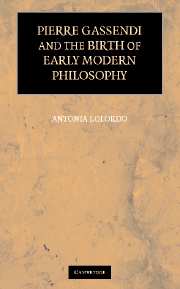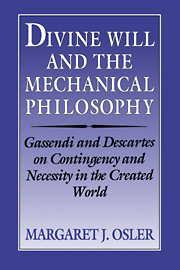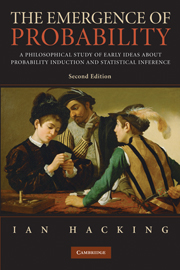Pierre Gassendi and the Birth of Early Modern Philosophy
This book offers a comprehensive treatment of the philosophical system of the seventeenth-century philosopher Pierre Gassendi. Gassendi's importance is widely recognized and is essential for understanding early modern philosophers and scientists such as Locke, Leibniz and Newton. Offering a systematic overview of his contributions, LoLordo situates Gassendi's views within the context of sixteenth- and early seventeenth-century natural philosophy as represented by a variety of intellectual traditions, including scholastic Aristotelianism, Renaissance Neo-Platonism, and the emerging mechanical philosophy. LoLordo's work will be essential reading for historians of early modern philosophy and science.
- One of very few works on a figure now recognised as crucial to the development of early-modern philosophy and science
- Offers a comprehensive overview of Gassendi's philosophical system
- Deals with connections between philosophy, science, and religion
Reviews & endorsements
"LoLordo's book stands out in the already copious bibliography on Gassendi for its plain and well-balanced treatment of all the main issues tackled by the philosopher. Following the numerous partitions in which the Syntagma is articulated, the book points out the systematic nature of Gassendi's thought: theory of knowledge and doctrine of perception, theory of signs, space and time, atoms and causes, bodies and motion, phenomena of generation and life, corporeal soul, metaphysics of body, immaterial soul and knowledge, and God are the main topics LoLordo covers in her chapters, using a clear and orderly scheme, close in spirit (even though not literally) to that Gassendi himself used in the Syntagma." - Gianni Paganini, Università del Piemonte Orientale
Product details
October 2006Hardback
9780521866132
294 pages
235 × 158 × 20 mm
0.6kg
Available
Table of Contents
- Introduction
- 1. Gassendi's life and times
- 2. Gassendi's philosophical opponents
- 3. Skepticism, perception and the truth of the appearances
- 4. Cognition, knowledge and the theory of signs
- 5. Space and time
- 6. Atoms and causes
- 7. Bodies and motion
- 8. Generation, life and the corporeal soul
- 9. The metaphysics of body
- 10. Faith, reason and the immaterial soul.





